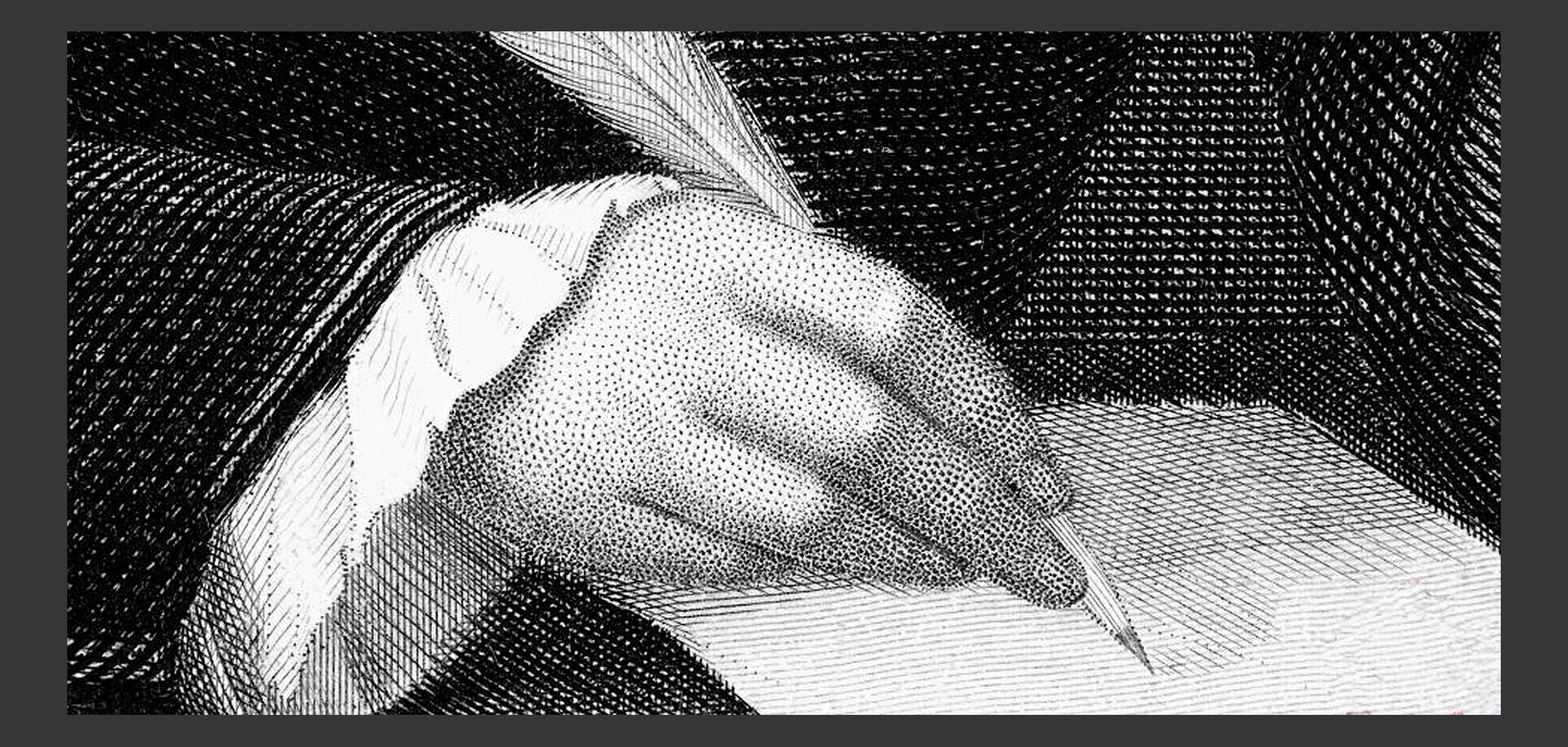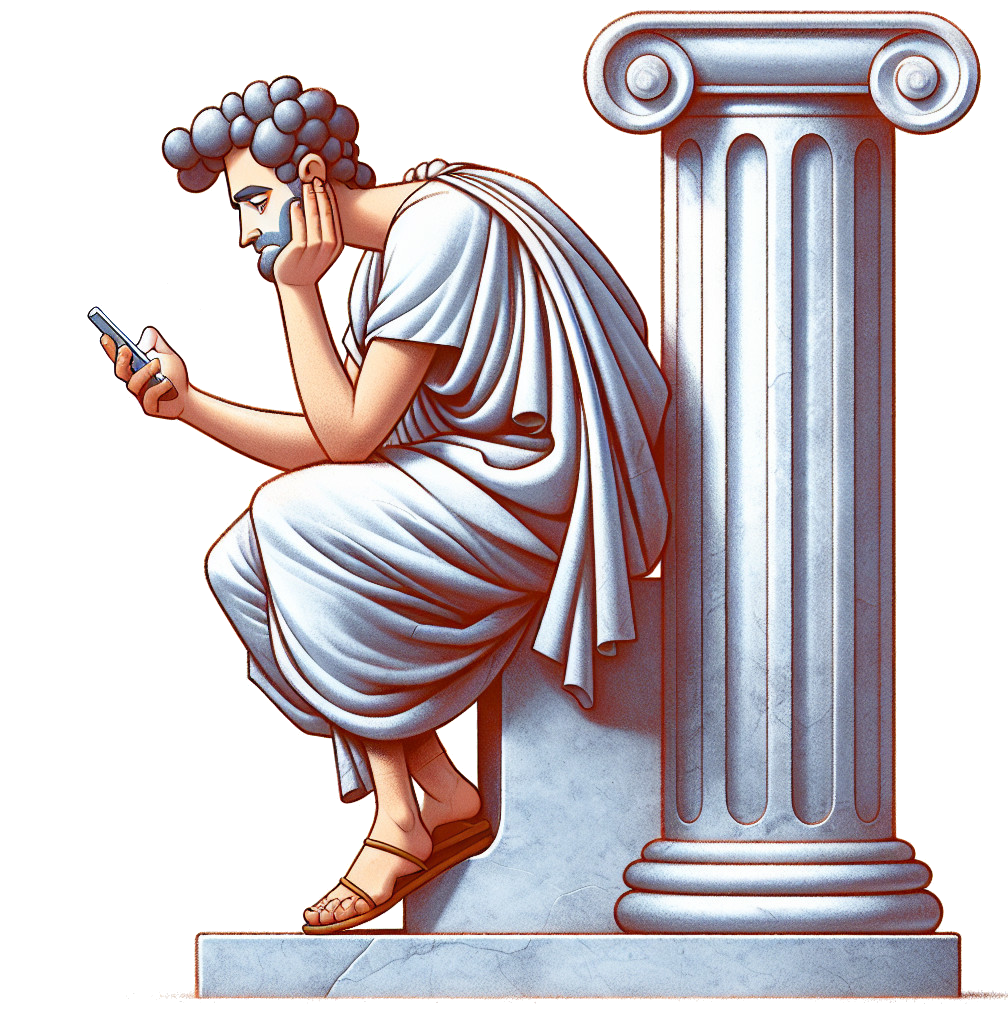
"Allow yourself the license of imagination." - Claire Van Zant
Notes taken from the lectures of Claire Van Zant

I'm told that students don't take notes anymore. This doesn't surprise me but it saddens me. I find that taking notes-- taking thorough notes-- deepens my understanding of a subject. The act of writing something down also solidifies the memory, which is why, for over a half century, I have copied my acting cues and lines onto index cards.
Note-taking was not an option in Claire Van Zant's classes. You were expected to take detailed notes and, during your first class with her, she reviewed your notes to make sure you were taking them well. I have no idea why, but I am forever grateful that it occurred to me at the beginning of the first class that I needed to take good notes, take them legibly and keep them because I would want them in years to come.
Sometime in 2018, I looked at the 40+ year-old pages from Humanities I and was frightened to see that the pencil notations (Pencil?!? What was I thinking?) were faded to the point of being almost illegible. I sprang into action, first scanning the originals with the contrast level turned way up and next transcribing them to typed, digital copies. I also had the forethought to scan all of the supplimemtal handouts Van Zant supplied to her classes.
The end-result was utter serendipity. Five years later a fire completely destroyed my home, including all of my notes, my essays and VZ's handouts. To my complete relief the notes and handouts survived digitally. The essays, however, had not been scanned yet. My feelings about this are mixed. Although they represent a budding rhetorical writer, (and one was rather good!) there was another in which I failed utterly. In addition to the "D" there was a diplomatic-yet-pointed editorial comment from Lady Claire that made no attempt to hide her disappointment.
That is the mark of a great teacher: that over 50 years later that memory of failure stills stabs me with genuine shame.
I debated including my notes on this site. At first, the perfectionist in me cringed that the idea of sharing a teenager's typos, misspellings and incomplete transcription. I also remembered Van Zant's rumored decision to destroy her lectures. I worried that including my adolescent scribblings might misrepresent her consummate knowledge and understanding of her chosen field.
But then I thought of the mounting stories about how the Humanities and Literature is fading from our country's curriculum. I thought of the increased dependance our society has for ideas stretched no further than 15-second Tic Tok videos and how snark and insult are continually passed off as genuine debate.
I include my notes here in the hope some young person may find them and aspire to deep contemplation. They are a poor substitute for the lectures they reference, but it's all we have left.
 Humanities I, Ancient Athens (and Renaissance Florence)
Humanities I, Ancient Athens (and Renaissance Florence)
Humanities I, Ancient Athens (and Renaissance Florence) takes two influential cities at the pinnacle moments of their impact and examines them under the microscope of three questions: What is a good person? What is the good life? What is the good society?
The main objectives in Athenian education were to become the ideal citizen, to build one's mind to debate and judge, to defend one's city and to become an adult. The Athenian education stressed the development of one's mind to create a better society. This is contrasted to American education which stresses technical and professional development to create a better individual. They [the Athenians] considered the mind much more important than the physical aspects of a person. The adult produced was an adult who could think, debate, reason and make a better society.
People in Renaissance Florence saw the world from a number of different vantage points. Their perspective was sometimes an accident of birth. Some were born the heirs of merchant princes who ruled the city; others were the sons of unskilled laborers and had little chance to rise above their father's station. Perspective varied with talent. A poor boy whose brush could make a canvas vibrant with color might be preferred to his neighbor whose clumsy fingers could only grasp a hoe. Perspective also depended upon a person's role in society and the social class to which he belonged. Men and women, rich and poor, artisan and merchant, painter and writer, often defined what was good in different ways. As in all societies, no man's thinking was identical with another's; and Renaissance Florence particularly encouraged the expression of individual temperament. Because Florentine society was so diverse, no one person or group could define the good man, the good life, or the good society to the satisfaction of all.
Robin Johnson's Transcribed Notes
 Humanities I, New York and Contemporary America
Humanities I, New York and Contemporary America
"A man to be greatly good, must imagine intensely and comprehensively; he must put himself in the place of another, and many others, the pains and pleasures of his species must be his own." - P.B. Shelley
"If you want a race to learn, you turn them to books. If you don't, you make books a danger."
"The people have no need of spiritual pursuits; they are too busy producing material goods."
Compared to ancient Athens or Renaissance Florence, modern New York City is complexity compounded. New York has drawn its citizens from every corner of the world and New Yorkers see their city from markedly different perspectives. Privileged "Old New York" surrounds its life with private schools, expensive entertainment, trips abroad, and other freedoms and responsibilities of great wealth. Immigrants fight roaches, rats, slum-lords, and the vicious grind of poverty. In neighboring apartments live nationalists who seek to establish an exclusive society, and young minorities stretch for a higher rung on the social and economic ladder.
The first half of the class sought to shed light on these varied perspectives. Through a collection of essays and testimonials, (many of which are available on the CLASS MATERIAL page,) the challenges of welfare recipients, career women and businesspeople-- not to mention the rebels of the time, the Hippies-- are brought to light.In addition are essays featuring Alfred Kazin, Norman Hill, Whitney Young, Martin Luther King, Jr. and Malcom X.
The second half of the class focused on Aldous Huxley's eerily prophetic Brave New World with its theme of the advancement of science as it affects human individuals and works against the democratic system. This book also inspired several examinations of bioengineering, moral philosophy, and matters of life and death.
NOTE: 1984 by George Orwell was the final book studied in Humanities II. It lives large in my memory of this class but there is remarkably scant supplemental material concerning it. I do not know if my notes were lost or whether Van Zant chose not to delve into it in detail.
Maybe she just ran out of time.
Robin Johnson's Transcribed Notes
Humanities II, Man and God
Nulla ut ac. Nonummy neque vestibulum. Habitasse donec elementum tincidunt dictum eu. Gravida rhoncus vehicula. Vitae ligula semper. Urna sodales fusce eu leo est amet id nulla mauris lobortis wisi sapien nullam morbi. Et pellentesque est at eu nam vitae phasellus malesuada iure nec dui nulla consectetuer mi. Orci nam phasellus vivamus natoque dictum. Blandit dui elit leo nulla blandit. Suspendisse enim magnis. Urna adipiscing congue. Nullam fermentum mi. Nam sollicitudin sit sed ornare vitae quam dictum enim. Et fringilla libero. Nulla iaculis sem. Ac commodo leo pede enim in habitasse elementum elit in iaculis sodales mollis arcu tellus donec lacus vehicula. Etiam et ridiculus adipiscing nulla cras. Dapibus erat lorem. Neque natoque fames molestie senectus scelerisque.
Humanities II, Measure of Modern Man
Nulla ut ac. Nonummy neque vestibulum. Habitasse donec elementum tincidunt dictum eu. Gravida rhoncus vehicula. Vitae ligula semper. Urna sodales fusce eu leo est amet id nulla mauris lobortis wisi sapien nullam morbi. Et pellentesque est at eu nam vitae phasellus malesuada iure nec dui nulla consectetuer mi. Orci nam phasellus vivamus natoque dictum. Blandit dui elit leo nulla blandit. Suspendisse enim magnis. Urna adipiscing congue. Nullam fermentum mi. Nam sollicitudin sit sed ornare vitae quam dictum enim. Et fringilla libero. Nulla iaculis sem. Ac commodo leo pede enim in habitasse elementum elit in iaculis sodales mollis arcu tellus donec lacus vehicula. Etiam et ridiculus adipiscing nulla cras. Dapibus erat lorem. Neque natoque fames molestie senectus scelerisque.
Humanities III, Beyond Enlightenment
Nulla ut ac. Nonummy neque vestibulum. Habitasse donec elementum tincidunt dictum eu. Gravida rhoncus vehicula. Vitae ligula semper. Urna sodales fusce eu leo est amet id nulla mauris lobortis wisi sapien nullam morbi. Et pellentesque est at eu nam vitae phasellus malesuada iure nec dui nulla consectetuer mi. Orci nam phasellus vivamus natoque dictum. Blandit dui elit leo nulla blandit. Suspendisse enim magnis. Urna adipiscing congue. Nullam fermentum mi. Nam sollicitudin sit sed ornare vitae quam dictum enim. Et fringilla libero. Nulla iaculis sem. Ac commodo leo pede enim in habitasse elementum elit in iaculis sodales mollis arcu tellus donec lacus vehicula. Etiam et ridiculus adipiscing nulla cras. Dapibus erat lorem. Neque natoque fames molestie senectus scelerisque.
Humanities III, The Lost Class (or Where did Shakespeare fit in?)
 Humanities I, Ancient Athens could very well have been titled Humanities I, Ancient Athens and Renaissance Florence. The spotty references I have to the title cite it only as "Ancient Athens" and yet I wrote a paper during that class titled "Renaissance Music's Effect on Social Structure" and there are several assigned readings that deal with Florence in the 15th and 16th centuries.
Humanities I, Ancient Athens could very well have been titled Humanities I, Ancient Athens and Renaissance Florence. The spotty references I have to the title cite it only as "Ancient Athens" and yet I wrote a paper during that class titled "Renaissance Music's Effect on Social Structure" and there are several assigned readings that deal with Florence in the 15th and 16th centuries.
To what extent the Renaissance period was covered I am not sure. Recently, I uncovered a Post Bulletin article from August 14, 1968 that briefly mentions she taught Macbeth. In addition, I have a vague and illusive memory from my own years at Mayo that the Humanities III class (that I did not take) was focused exclusively on Shakespeare's King Lear. I haven't connected with anyone who took the classes around the time I did and so I have not been able to confirm this.
I can say that Shakespeare's work is mentioned in "Additional Suggested Reading" sections throughout and was no doubt referenced during lectures. Van Zant attended Shakespeare plays, (in Stratford, of course) directed Shakespeare plays and probably acted in them as well. She was a fan, no doubt, but oddly Will was not a focal point in any of the classes I took.
And finally... Why I hate The Duchess of Malfi
John Webster's revenge tragedy is the one piece of literature on which I well and truly bombed during Mrs. Van Zant's Humanities series. I couldn't stand it. It bored me out of my mind and reviewing my notes reminds me why. By Act III, I took to abbreviating the character names to keep up with the frantic and silly pace of this Jacobean soap opera. I can't get through it now without bursting with laughter.
Act III, Scene 2
The bedroom of the D - A and the D are joking with each other - A, playing a prank, leaves the room and hides in another - the D is then speaking to herself and when she gets to the point about her brothers, she sees F in the mirror. F pulls out a poniard and offers it to her - F tells the D to shut up her man or he'll be killed - he tells her a fable about love and death - invocation of violence turns her off - when F is gone, A is deeply affected - threatens C and F. (as a game) the D accused A of fraud and robbery - she charges a guard (B) to accompany him out of the country (to safety) - B tricks her by expressing contempt for his job - his second opportunity to back out - he doesn't, for the money - The D tells B about the D and A. (ha-ha)The Act III, Scene 3
Cardinal's palace - B comes with news - tells the C and F. F loses it again.Act III, Scene 4
The Cardinal is invested as a soldier - A, D & the kids are banished - A and D bid farewell - she urges him to reroute his journey.Act III, Scene 5
Back in the D's bedroom where B and guards are about to arrest the D. Her room is guarded.Act IV, Scene 1
B is sent with a message the F seeks reconciliation - in the dark, he offers the D his hand - 'tis a dead man's hand - the D sees A and kids dead - she is upset - F reappears - Bodies were wax - (he's having so much fun!) He will spare her body, but will ruin her mind - B's third chance comes and goes.Act IV, Scene 2
The madman cometh - the madmen are corrupt like the rest of society - the D is unmoved - B comes in disguised as an old man - in comes the executioners - the D remains calm - she kneels and dies - (she does it very well) they kill the maid (she doesn't do it very well) F comes in - is apart from his sister for the first time - realizes his incestuous feelings for her - loses it once more - the D comes to life long enough to learn A and the kids are still alive - dies a beautiful death - B vows to warn A and keep him safe to revenge F's neglect rather than justice.Act V, Scene 1
A and Delio - D is emissary to the C. D believes a reconciliation is possible - F is now mad, a lycanthrope (scavenger of the dead.) He wanted to drive his sister mad but it is he who is mad.Act V, Scene 2
Julia and the Cardinal again - the C is tired of J - B gets J to spy on the C - finds out that the C gave order to kill A - B is planning revenge that will save AAct V, Scene 3
A & D in the cemetery going to the C's - Echo - A feels the D's presence is a good sign.Act V, Scene 4
No one is supposed to go into the C's lodging - in this privacy, the C gets rid of J - B finds out the C is going to kill him after A - B rushes away - accidentally kills A in dark hallway (the one dude he was going to save, he has killed.)Act V, Scene 5
B carries A to the C - the C is emotional - he cries for help when B threatens him - B kills servant so C won't get help - B wounds C - F enters - stabs C - B and F stab each other simultaneously - D appears with A's son - B complains of neglect - C pleads to be laid by and never thought of again - F, "My sister, my sister. There's the cause of it."
Indeed.